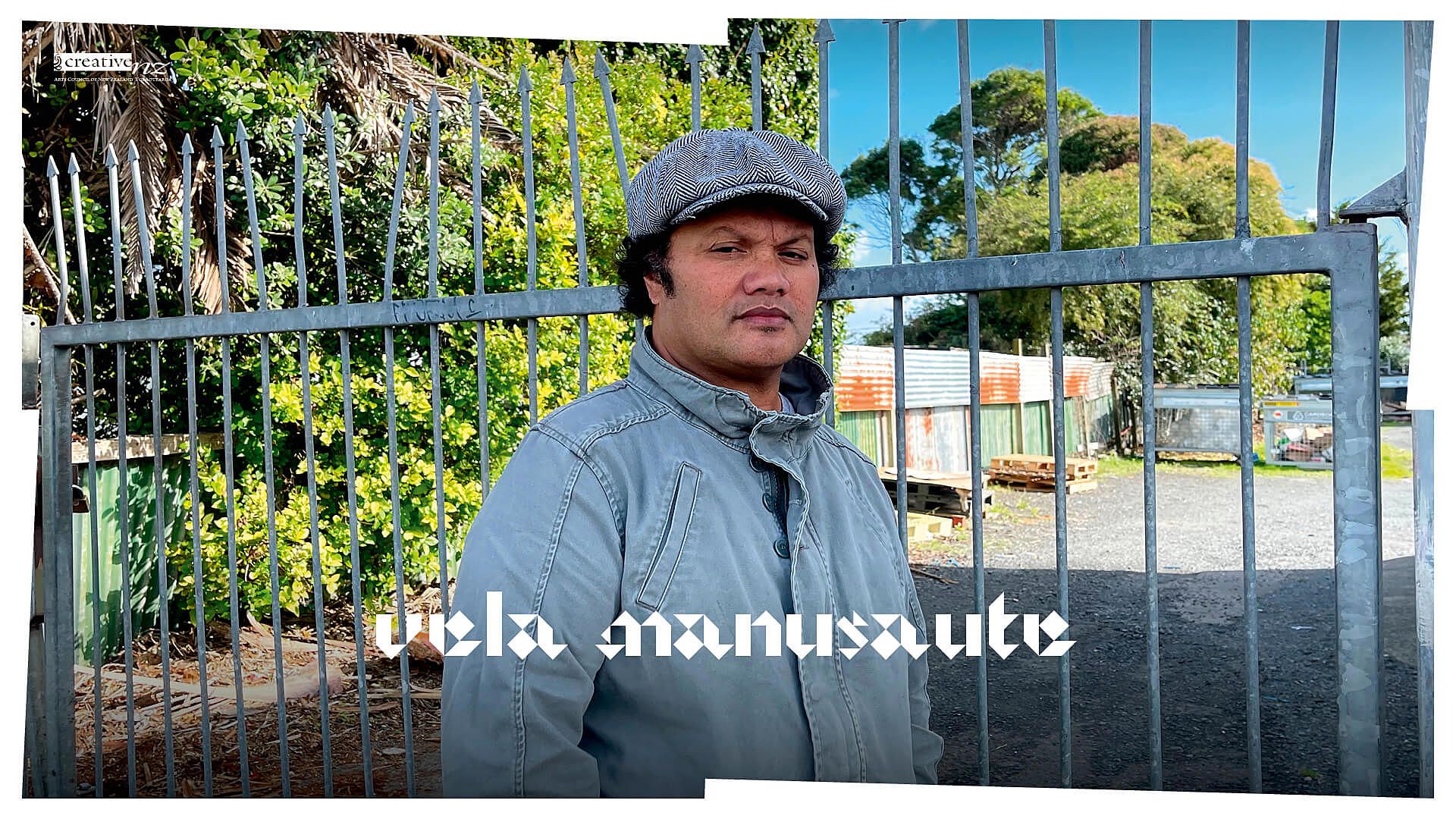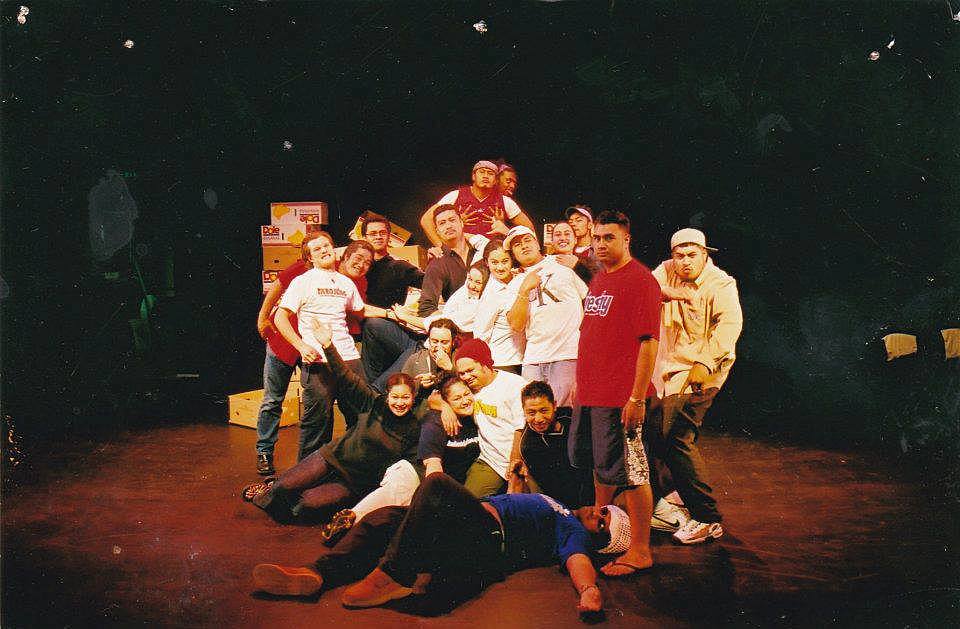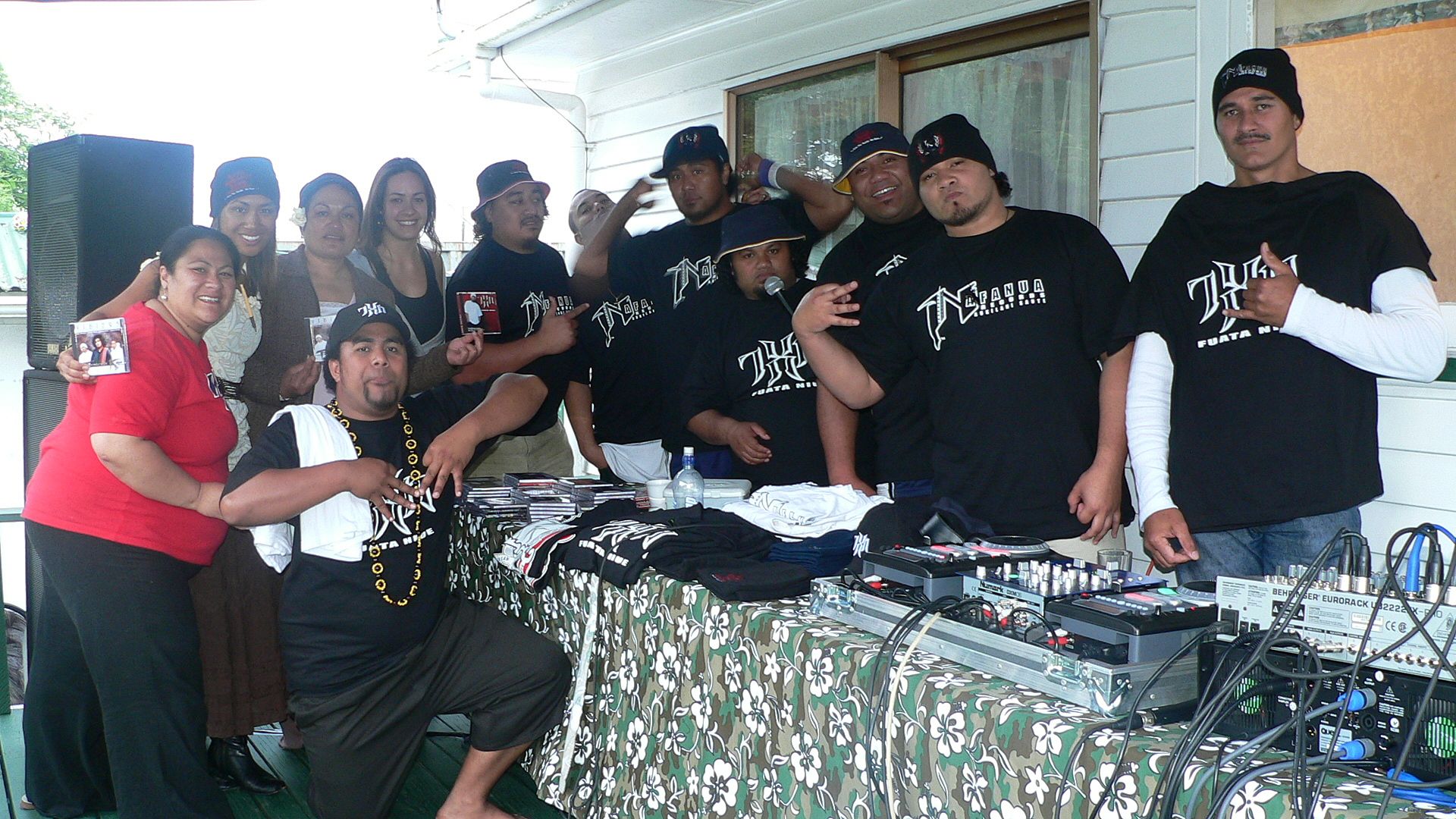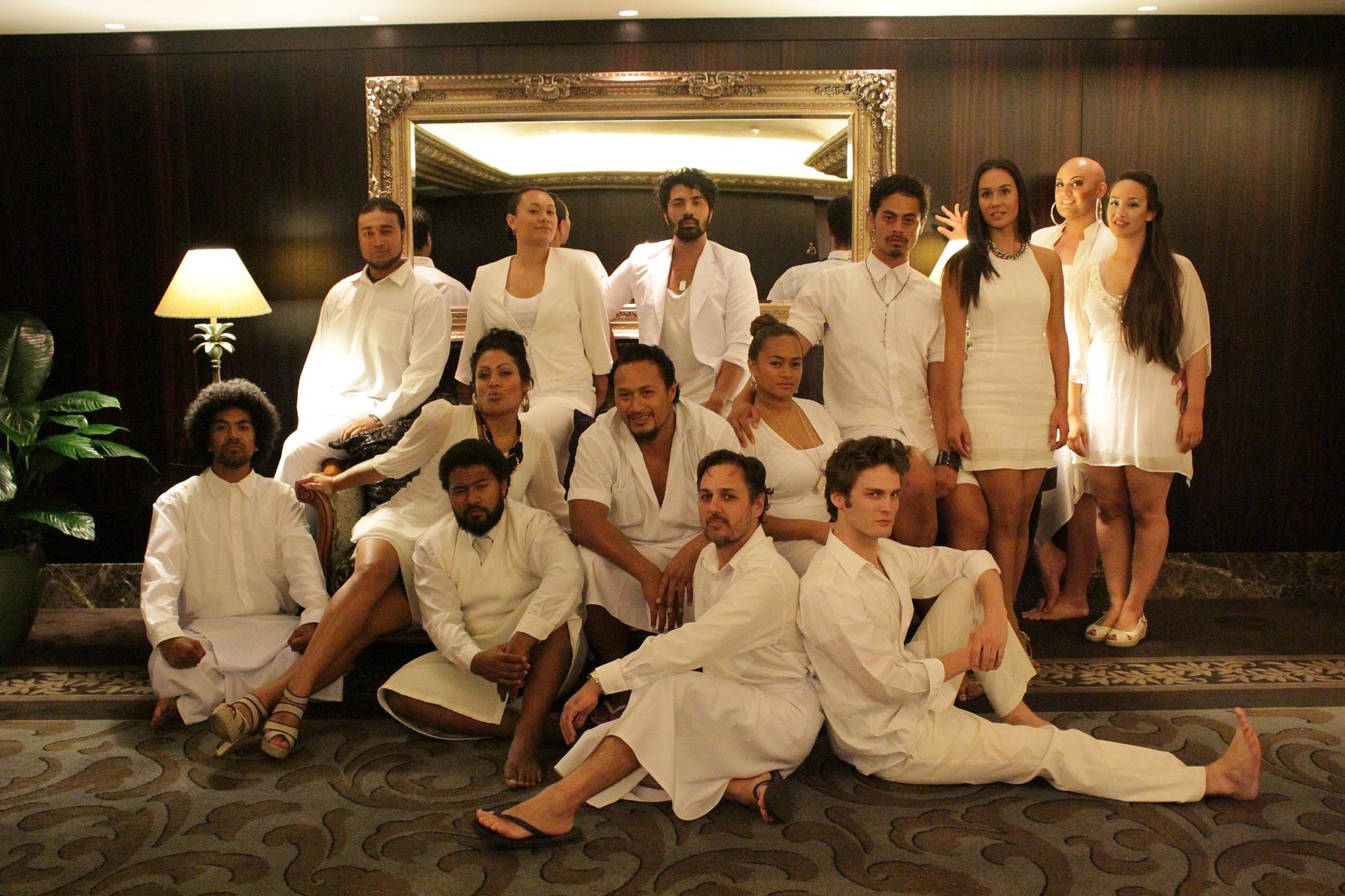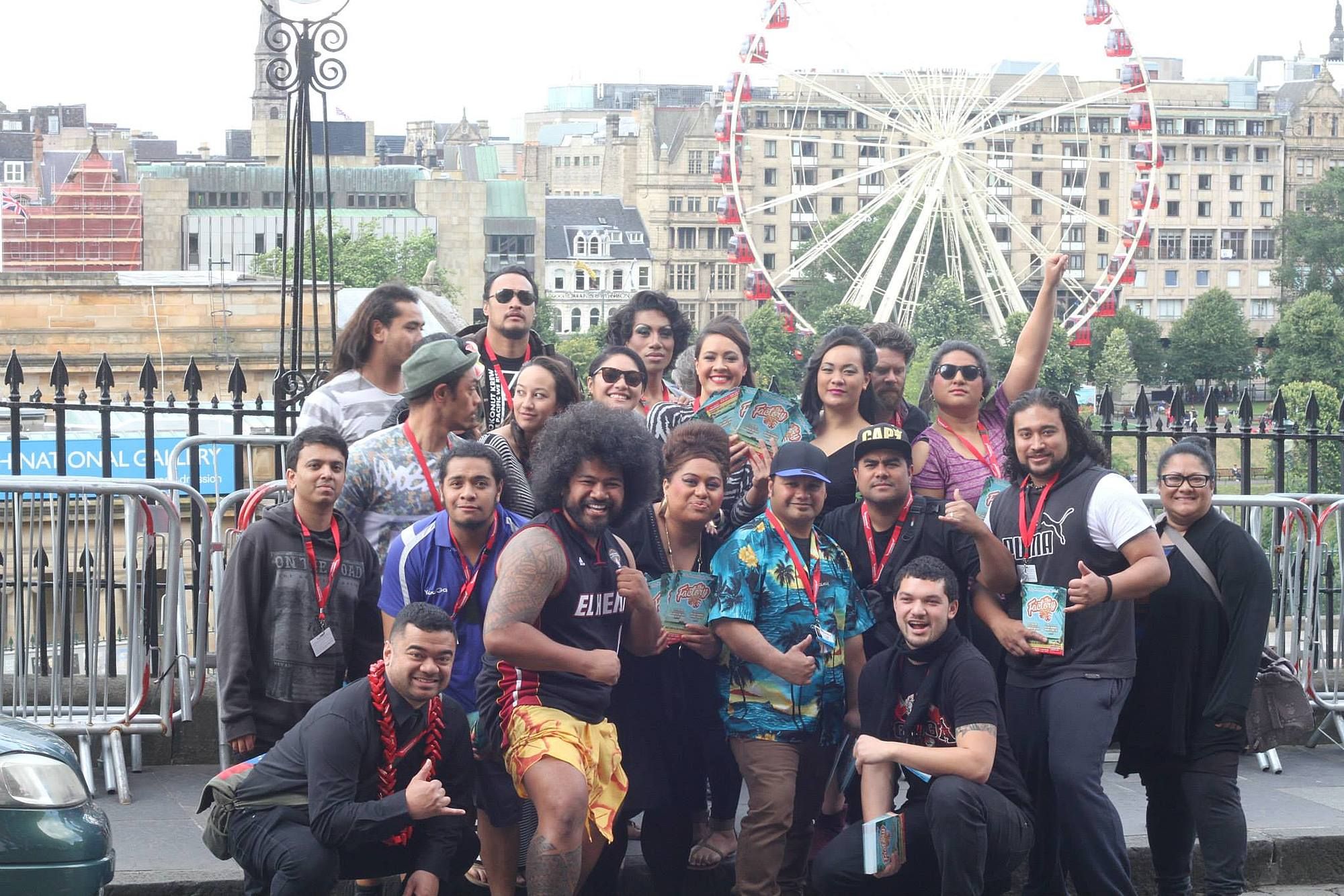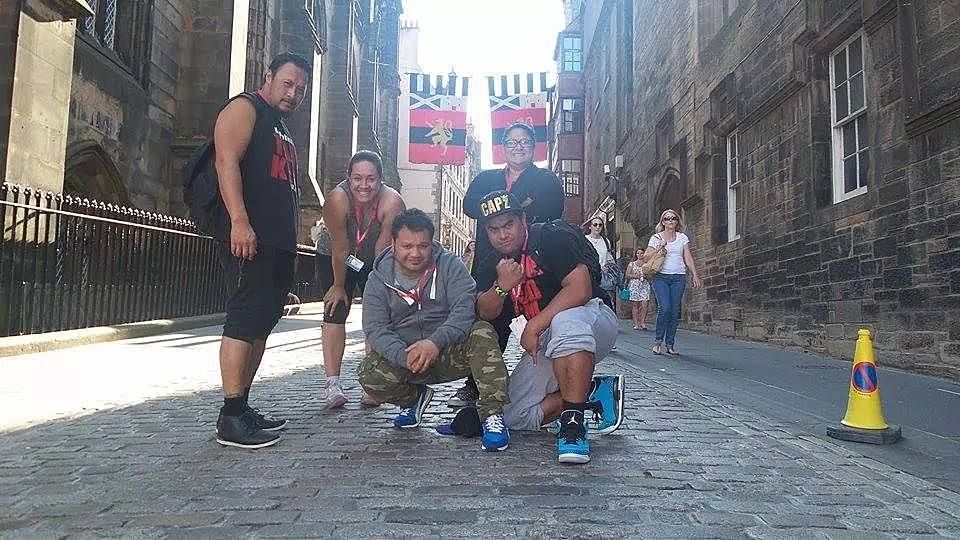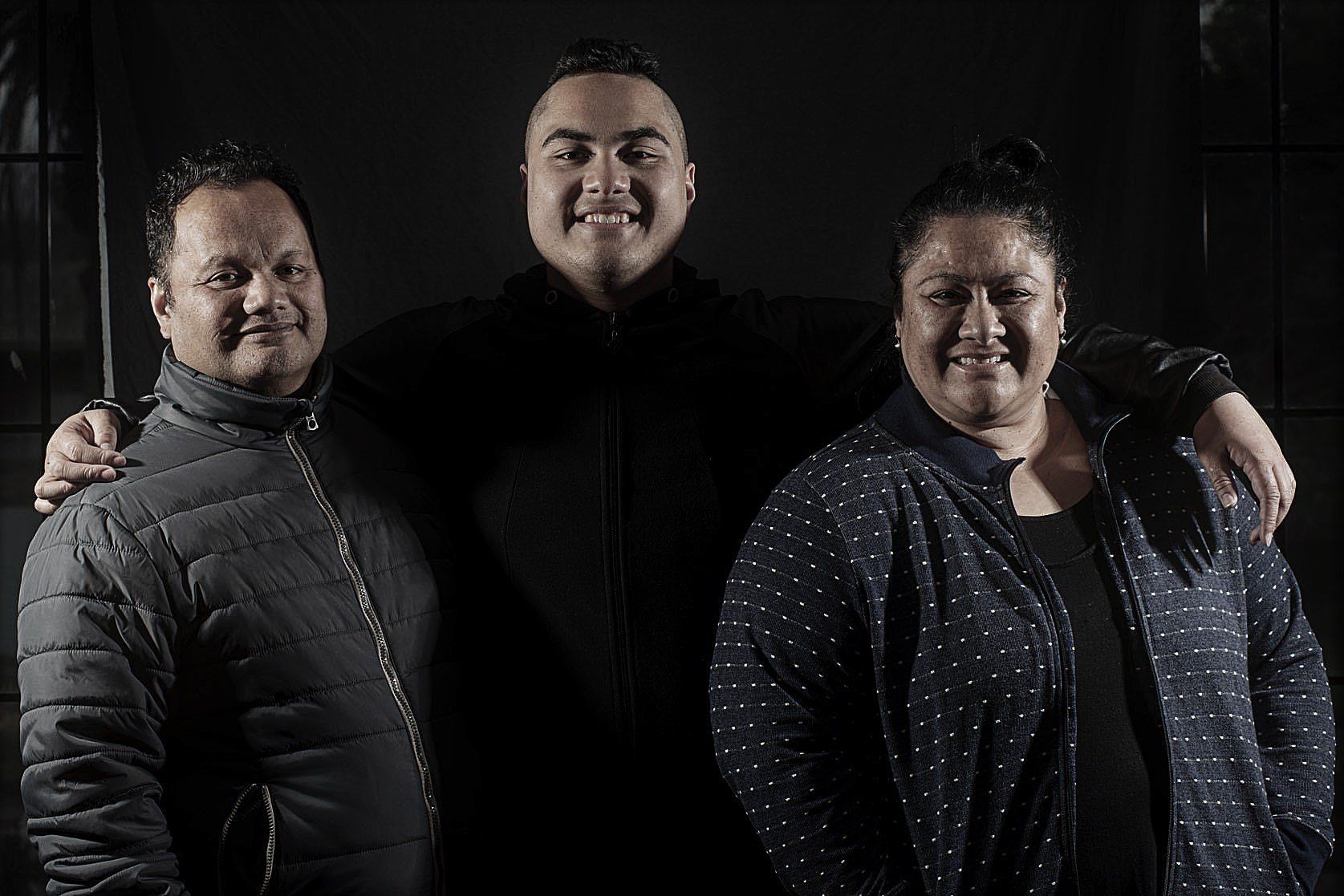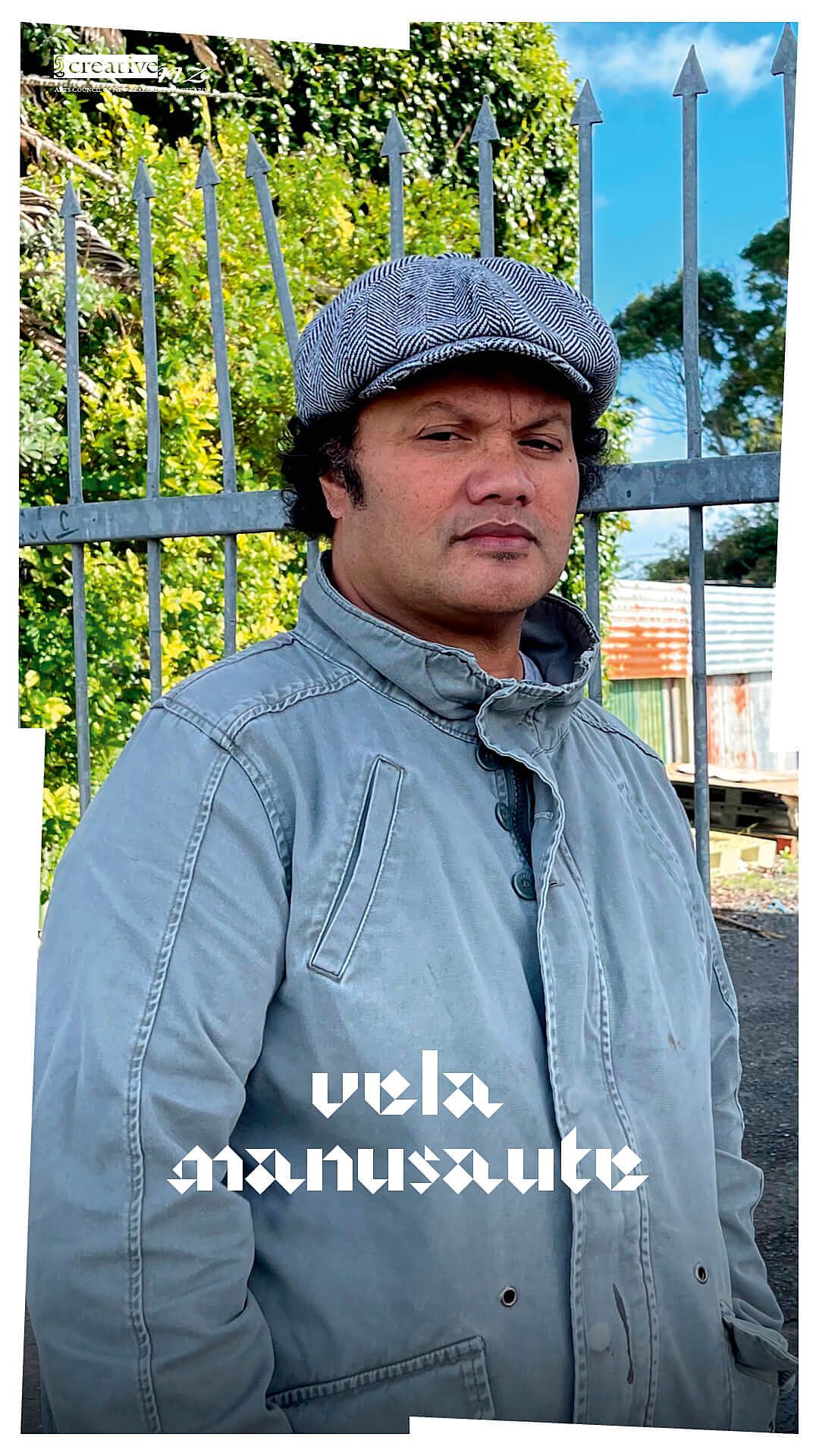From the Pacific I Rise
What do you do when you’re a drama graduate with no job? You create your own. Theatre maker Vela Manusaute writes on the Kila Kokonut Krew, chasing the dream and changing the narrative.
We’re collaborating with Creative New Zealand to bring you the groundbreaking Pacific Arts Legacy Project. Curated by Lana Lopesi as project Editor-in-Chief, it’s a foundational history of Pacific arts in Aotearoa as told from the perspective of the artists who were there.
Kila Kokonut Krew was born out of the need to create opportunities for ourselves. At an early stage of our careers, we discovered that there was no work for us Islanders. On television and screens, we were always portrayed as cleaners, poor people, sportspeople and, most often, villains. We wanted to change the narrative and return the creative power to ourselves and make the creative work.
Even when we had been to one of the best drama schools in the world, Toi Whakaari, no one prepared us for life outside of drama school. We graduated with diplomas and degrees, hung them up on the wall next to Jesus and prayed that we would win television and film roles, but no one answered our prayers.
I worked in a supermarket in Ōtara – ‘real jobs’ were the jobs that put food on the table. I worked a real job and never really told anyone I had graduated from drama school because they would say, "You on Shortland Street?" If you weren’t, you were not considered a ‘real’ actor.
What are the opportunities for us Islanders working in the creative industry?
One night, my partner Anapela Polata‘ivao and I talked about what was there for us in the theatre world. With tears, in our state house, we decided to plan and create something.
“But how are we going to put food on our table? We need to get real jobs to pay the bills.” I told Anapela that I had an idea to write a play about my experience working at the supermarket, but the problem was, I wasn’t a writer. I didn't know how to write.
Back in those days, when we were still developing our ideas for KKK, we didn't know how we would do it, but one thing for sure was that we wanted to change the game. Since our high-school days we had been working, most times for free, in the theatre. That was all we knew. We'd become drama graduates with no acting jobs.
When I was working at the supermarket I had a video camera, and I'd record the workers talking during their lunch break, and would hand-write their words on a piece of paper as dialogue for my first play, Taro King.
This was around the time Anapela and I were about to have our first baby, and that was all the motivation I needed. I wanted to make a change for my child. I didn't want to tell him that I had a dream but then was too afraid to chase after it.
I left my real job at the supermarket to chase that creative dream
I started selling t-shirts at the Ōtara flea market under the label Phat Islanders, and it was here that I learned about selling, the hustle, and the first step of being fearless to make the change that was needed. We had to start from somewhere, and throwing ourselves out to the unknown was the best thing we did for ourselves.
It all started with Taro King, inspired by that experience working at a supermarket in Ōtara. The story of two taro cutters and their lives in a world not seen in the theatre. When we had 20 pages of the so-called script, we borrowed money from Ana's parents to workshop the idea. We made sandwiches and workshopped with a few of our actor friends.
The only way to be heard was to take control ... to take charge
The original cast of the Taro King at Maidment Theatre, 2002.
Our very first season of Taro King took place at the Maidment Theatre and was produced by the company Island Players. When we finished our first season we received great feedback – the public loved it. The following year, The Lijan company picked up Taro King for a stint at Bats Theatre in Wellington. When we found out we had been nominated for the Best New Writer Chapman Tripp Theatre Award that same year, two KKK members and I drove down to Wellington. We came back with no award, but instead a harder passion to start something and to continue the momentum. I was hungrier than ever to get something off the ground.
We moved from our state house to a new home, and from there came new ideas and a desire to make more work. We needed to start something. I called to arrange a meeting with a few local creatives who were in the same boat as me, seeking to fill this void. I had an idea to form a group of like-minded practitioners in which every aspect of the creation and presentation was our sole responsibility. Hence, Kila Kokonut Krew ‘From The Pacific We Rise’ was born. A few people turned up then left disappointed because of the chosen name, with a warning that it might backfire at those who remained.
I didn't want to play it safe. When we first launched the KKK, people laughed and mocked us, asking how long we would last as a group.
No one could understand the desire more than the person looking in the mirror – me
At the start of the KKK, there were more than 13 members, and our first show was Playaz Night at a 900-seater in the Auckland Town Hall as part of the New Zealand Comedy Festival. We were fearless with the contents of the show, and the audience turned up.
It was also the first time we had experimented with original music in our shows, leading us to create the first Pacific musical, The Factory, in 2011.
The official headquarters of our theatre company was at the back of our new house – this was the breeding ground for our creative ideas. The sleep-out in the backyard was turned into a studio, then later into a recording studio. With the help of many hands, we managed to build a recording studio, known as Nafanua Records. I met a builder up at the TAB; he was boasting about coming to New Zealand with a Sunday School certificate and now running a building company. So over some beers, he agreed to build our studio. It took months, with much help from family and friends from all over the place. Finally, we had the studio – we were going to change the music industry with our sound from NAFANUA.
Kila Kokonut Krew NAFANUA Records album launch at the back of our house in Manurewa, 2007.
The nucleus of our ideas and the core of Kila Kokonut Krew energy was in our backyard. Our power came from t-shirts, and we did everything as a crew and as a team. Some had real jobs and some were at university, but we always ended up meeting in our backyard to create ideas for our shows. We managed to score a spot on Triangle TV to programme our show every Sunday – the only television channel we could get on. Still, people giggled and laughed about us not making it onto mainstream television.
We had no funding from any creative establishments. Everything we wanted to create all depended on our theatre shows, DVDs, CDs and t-shirt sales at the market. Back into Kila Kokonut Krew’s cash box, we poured those sales to build our ideas.
Many people came and went in our lives. We all grew apart from the ideas. I believe the hardest part is knowing whether to lead or to follow, as it comes down to the team and the people around you. To get people excited about ideas and challenges within the group because that is how we grow as people. The honesty made us real and made us take a good look at ourselves.
Many hands helped build the ideas into a reality
I learnt the power of editing and filmmaking during this time. No one went to film school, so it was all through experimentation – like the green screen. We bought green paint, painted our studio wall, stood in front of it, and wondered why the green wall was still in the picture!
Everything depended on our team’s skills – computer skills, law, music and acting experience – to create the bones of these ideas.
The mainstream at the time was too far out of reach for us. We would think, “Mainstream TV will have none of our ideas.” Our ideas were too controversial, and I believe they were afraid of us; but still, we went ahead with our ideas, finding an audience and people to collaborate with and then, slowly, things started to turn our way.
We started making small moves to Sāmoa, Tonga and Niue, working with artists. It was also the first time I had been back to Niue after many years of living here in New Zealand. When we arrived, we were welcomed by our great leader, former Prime Minister Young Vivan, who said, "Here you will find your spiritual calling." It was only after a few months that I finally understood what he meant. We are connected to our land; our spirit belongs with the ocean and ground of our birth. Those words significantly affected my creative work as I asked myself, "Who am I?" Because why had we come to New Zealand when everything was here on this island.
We are connected to our land; our spirit belongs with the ocean and ground of our birth
We were creating success with our theatre shows, and from there we created Once Were Samoans, which started as a parody in one of our Triangle TV skits. We then made it into an actual play about a solo mother with five angry sons and two sisters, who discover the secret lives of their family in the end. It turned out to be a massive hit for us, touring all around New Zealand and Australia; we even got invited to play at the Māori King’s Coronation.
Once Were Samoans poster. A hit show that toured NZ and one show in Australia.
We always knew the theatre worked for us, it was a space to use our voices
One day, I visited my mother. When we sat down and spoke in her living room, she began talking about how we’d been living in New Zealand for over 30 years and that I should write something about my father, who worked in a factory. It was at that moment that the idea of The Factory was born. I told my team, Anapela, Stacey Leilua, Aleni Tufuga and Glen Jackson, and said that this wasn’t going to be a play, but a musical. A tribute to the Pacific Islanders who worked the factory floor in the 1970s, helping build New Zealand.
The cast of The Factory. Auckland Arts Festival, 2013.
I didn’t know anything about writing a musical but believed my team and I would figure it out and deliver it the KKK way. We reached out to some amazing talent and collaborators and together went on to create a work that I was very proud of. The Factory, A Pacific Musical was a hit, playing its first iteration at the Māngere Arts Centre, then the Auckland Arts Festival version in 2014. That version toured Australia to sell-out crowds and then went to the Edinburgh Festival. That was the end for us all as Kila Kokonut Krew. The festival was too big, with over 3000 shows, and forced us to cut our show down.
The cast of The Factory, Edinburgh Arts Festival, 2014.
Edinburgh was the burial ground. There KKK died as a theatre company. There was grieving at the time, but today the spirit of KKK lives on.
We came home and were forced to close the company. I wanted to carry on, but it was too much. We had been at it for the last 13 years and it was time to let it go. I lost my creative purpose, but never the loyalty to our tight five.
The TIGHT FIVE standing on the Royal Mile - From Manurewa to the World. Edinburgh Festival with The Factory, 2014.
Never was a group of people so loyal and so proud of an idea as the Kila Kokonut Krew team. I am sure everyone has their own version of the story or journey, but this is from my eyes and memories.
This was an important time of my life, and so were the people who came in and out of our lives. I can only look back with happiness, as today we are still working in theatre, television and film.
With our son, Rocky in Victor Rodger play Club Paradiso, 2019. Photo: Raymond Sagapolutele.
Yes, our company Kila Kokonut Krew, ‘From The Pacific We Rise’, does not exist as a company anymore, but our ideas and foundations of getting things done still remain strong with me.
Always the Kila Way.
*
This piece is published in collaboration with Creative New Zealand as part of the Pacific Arts Legacy Project, an initiative under Creative New Zealand’s Pacific Arts Strategy. Lana Lopesi is Editor-in-Chief of the project.
Series design by Shaun Naufahu, Alt group.
Header photo by Edith Amituanai.
